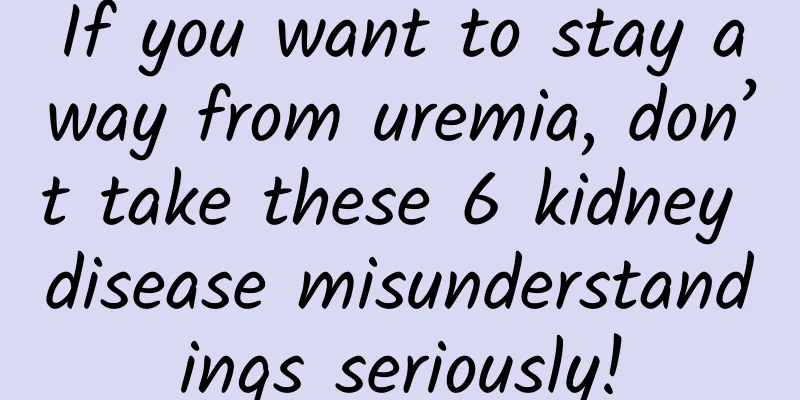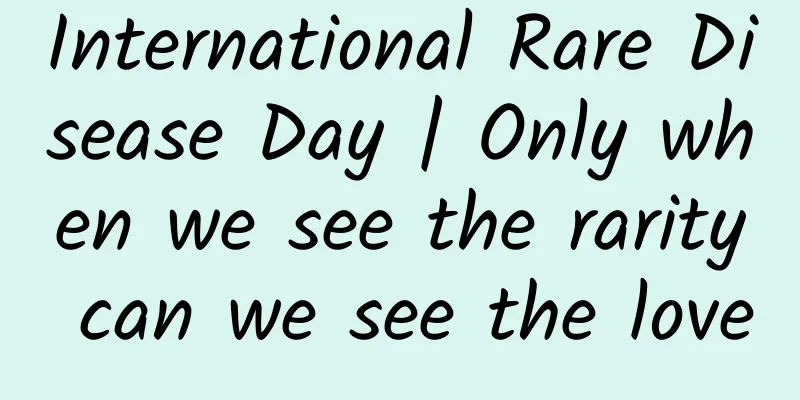If you want to stay away from uremia, don’t take these 6 kidney disease misunderstandings seriously!

|
Uremia is the outcome that many kidney disease patients are most reluctant to face. In the process of kidney disease prevention and treatment, there are some common misunderstandings. If you do not pay attention to them, the condition may gradually develop into uremia. The following is a detailed list of these six misunderstandings. 1. Thinking that kidney disease does not require treatment if it is asymptomatic. Many kidney diseases may not have obvious symptoms in the early stages, but this does not mean that the kidneys are not damaged. For example, in latent glomerulonephritis, patients often do not feel any discomfort, but the lesions inside the kidneys are quietly progressing. Once ignored, the condition may worsen. 2. Drug abuse. Some people think that some drugs can "tonify the kidneys" and take them on their own, but they don't know that many drugs are nephrotoxic. For example, some Chinese medicines with unknown ingredients, antibiotics, etc., taken at will may damage the kidneys and aggravate kidney disease. 3. Ignoring abnormal physical examination indicators. If urine protein, occult blood, or elevated creatinine are found in urine routine and renal function tests, you should seek medical attention for further examination. Many people think that a single abnormal indicator is okay, thus missing the best time for early treatment. 4. Over-trust in health supplements. There are many health supplements on the market that claim to be able to treat kidney disease. But in fact, most health supplements not only cannot treat kidney disease, but some may also increase the burden on the kidneys due to the unknown ingredients they contain. 5. Failure to control underlying diseases. Hypertension and diabetes are important factors that cause kidney disease. If blood pressure and blood sugar are not actively controlled and allowed to remain at high levels for a long time, the kidneys will continue to be damaged and may eventually develop into uremia. 6. Thinking that there is no need to control diet after dialysis. If dialysis patients do not control their diet and take in too much water, salt, potassium, etc., it will increase the burden on the kidneys and heart, affect the dialysis effect, and accelerate the deterioration of the disease. |
>>: Are kidneys completely damaged after dialysis? 7 ways to protect residual kidney function!
Recommend
What happens if you eat spicy food during pregnancy?
Spicy food is not suitable for everyone as it is ...
What are the differences and hazards between e-cigarettes and cigarettes? What are the ingredients of cigarettes?
The main component of cigarettes is dry tobacco. ...
What to do if your scalp hurts after tying a high ponytail
Many girls have experienced this: their hair hurt...
Will pelvic cysts affect menstruation?
Pelvic cysts are more common in female friends un...
Can you really tell the difference between renal cysts and polycystic kidney disease?
Although both renal cysts and polycystic kidney d...
What to do if your menstrual period color is abnormal
Every reaction of our body actually reveals our h...
Why would a doctor recommend a clinical trial? Should I participate?
In the medical field, every breakthrough discover...
How to treat congenital uterine prolapse
There are many reasons for uterine prolapse, one ...
Is femininity innate?
Generally speaking, women who are feminine will a...
What is the cause of increased vaginal discharge after menstruation?
Leucorrhea is a vaginal discharge and is a normal...
What should you pay attention to when taking a bath every day during pregnancy
As we all know, the physical fitness of pregnant ...
What causes female pubic hair to itch?
Pubic itching is very common for women. Its occur...
Excessive discharge and wet underwear
Women's secretions are mainly leucorrhea. If ...
Does painless abortion hurt?
Modern society is very open. Many young men and w...
What to do if there is a meat ball in the vagina
I believe everyone knows the importance of the va...









